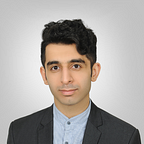From Old Delhi to George Bush's Best Buddy: Who was General Musharaff?
The word dictator does have a negative connotation, understandably so. It usually reminds us of Hosni Mubarak, Colonel Gadaffi, the notorious Zia-ul-Haq, Saddam Hussain, Idi Amin, and the list goes on. But Musharaff was different. Why though? Constitutionalists would argue he abolished the constitution, conducted rogue military operations, and is known as the 'architect of the Kargil Conflict' across the border.
We hardly see the likes of CNN, BBC, the Guardian, New York Times slating Musharaff. I've never seen the whole world publishing obituaries for a president of a developing country with meagre financial resources and, if the markets are right, on the brink of default. Perhaps that's why Pakistan is a unique country, or what white people often say is an 'abnormal' country.
Musharaff was born in an impoverished Muslim-majority Daryaganj in Old Delhi, and ironically a couple of decades later, he was a soldier in the 1965 Indo-Pak war. That is the legacy of old white men dividing India, but today it's about the four-year-old Delhite, who migrated to Karachi and later became one of this planet's most powerful men.
I don't want to talk about Bugti, Lal Masjid, Nawaz Sharif, and other entourages. I want to talk about who Musharaff was to me and what was going on in my ten-year-old mind when I saw Musharaff on the world stage. I did feel proud; there is no denying that. An urban Punjabi kid growing up in Karachi, I had a soft spot for him. He was way ahead of his time in finally liberalising Pakistan's state infrastructure, letting go of the archaic traditions, and taking us into the twenty-first century.
He did all of this at the cost of Americans invading Afghanistan. I can't entirely agree with that because he did what he thought was best for the country and was the president. He single-handedly changed the face of Karachi, did some essential groundwork for science and higher education, and even brought institutional reforms within the Army. What folks across the border often ignore is he was about to sign off on a Kashmir deal.
Musharaff never came off as dictatorial to me when he was liberalising Pakistan's private media infrastructure; he coined the term 'Pakistani Soft Power' and never shied away from the country's military capabilities.
Then came the deadly 2007, when everything changed. Benazir Bhutto was assassinated, general elections were called, and Mushraff had to go. It was time.
For me, the General was a Pakistani first. Religion, ethnicity, tribalism, brotherly countries nuance, and everything else didn’t matter when it came to the country, and it’s soft power. That’s how you make a strong nation-state.
